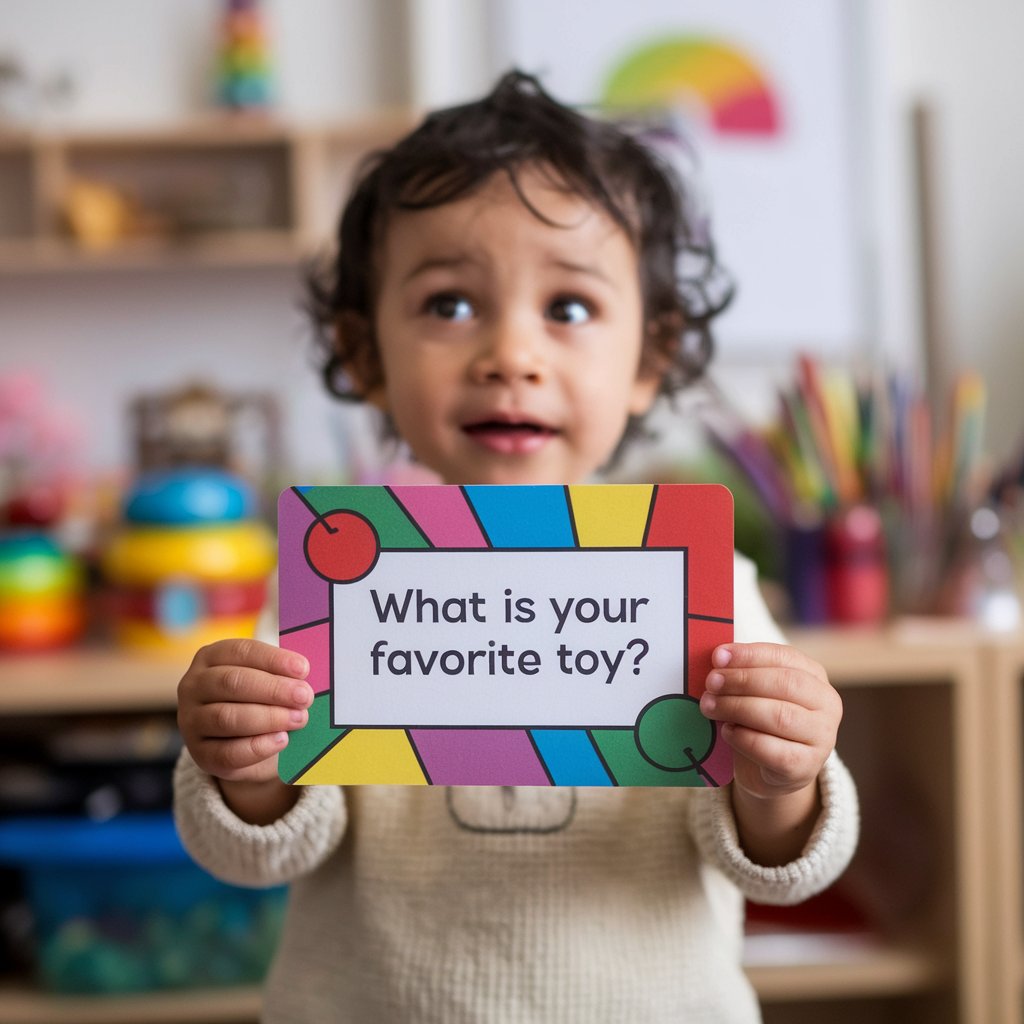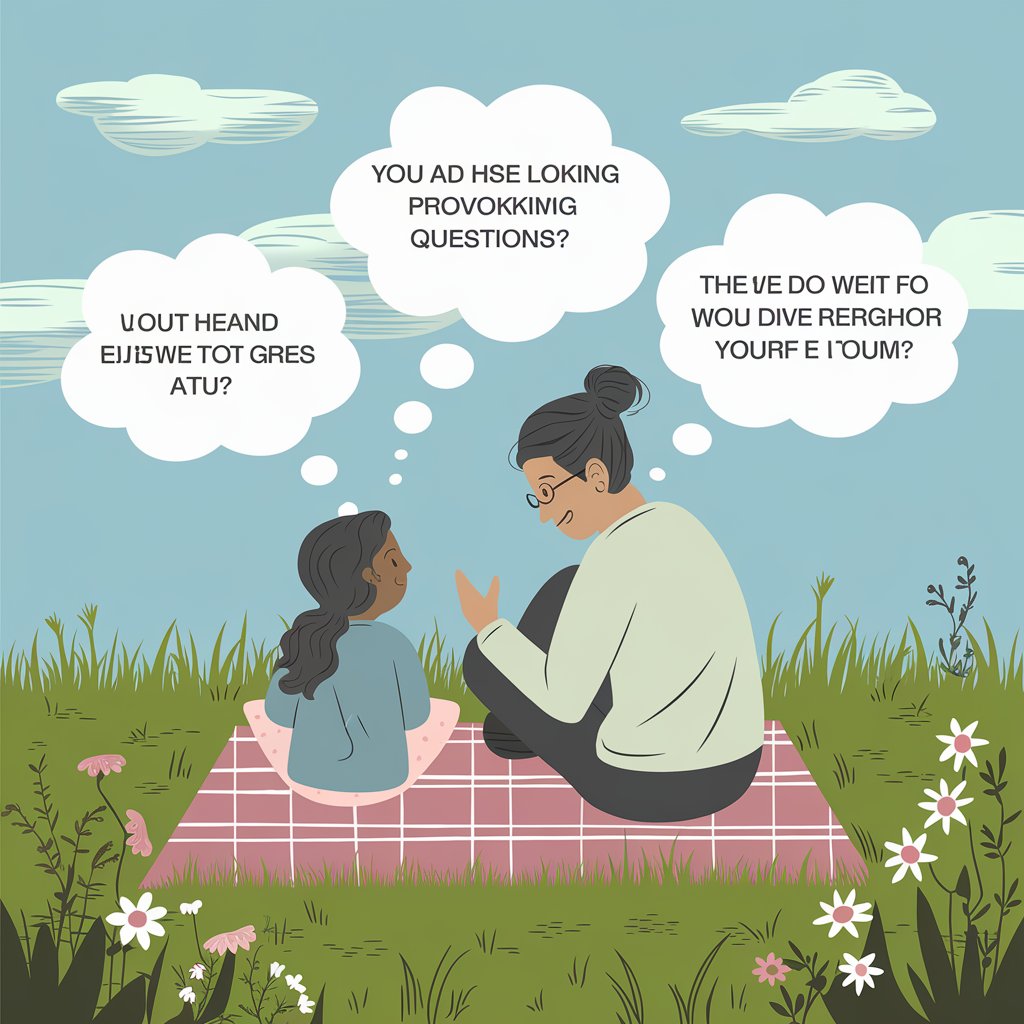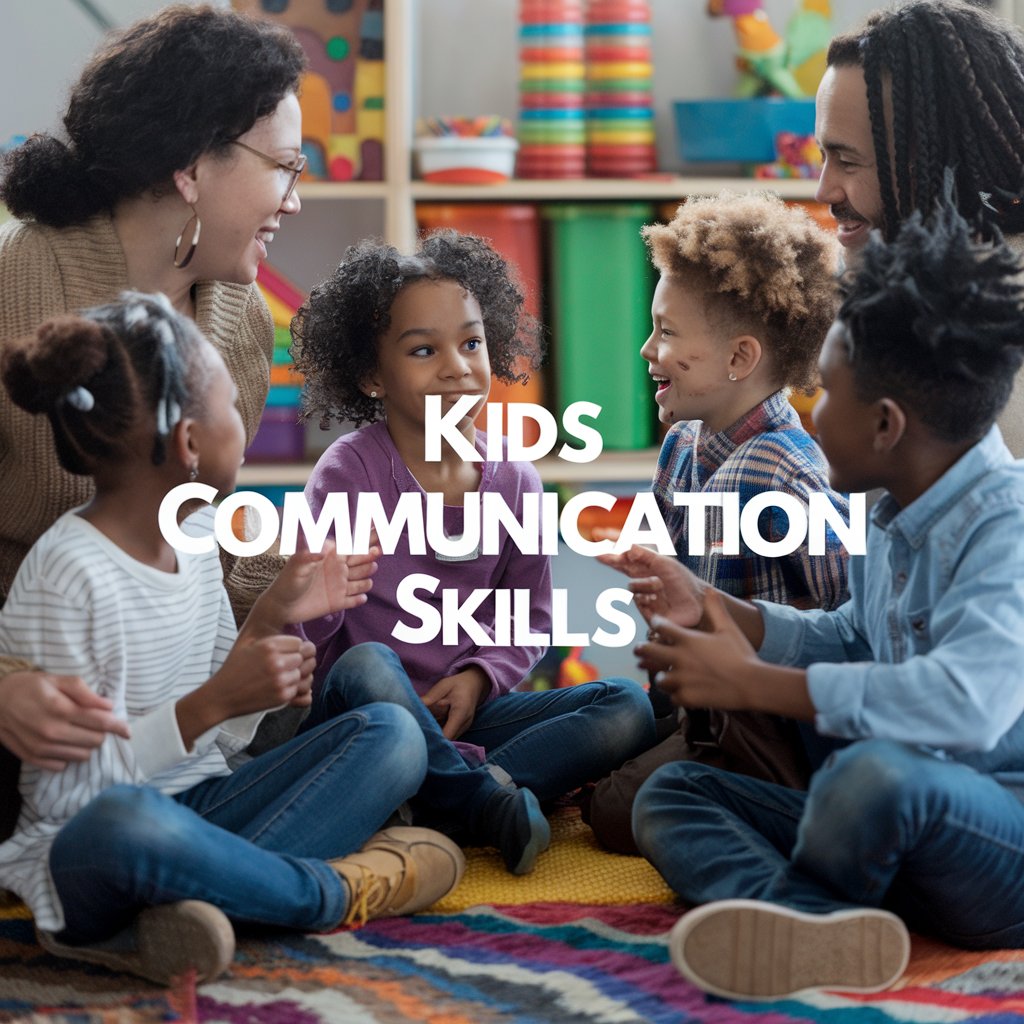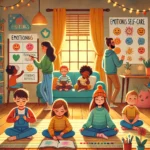Conversation Starters to Improve Kids Communication Skills
Talking with kids strengthens your bond and enhances their communication skills. Spark meaningful dialogue with these conversation starters for children of any age.
At some point, you’ve probably asked, “How was your day at school?” only to receive a non-verbal shrug or one-word response.
It’s easy to let conversations slip after a long day, but there’s great value in fostering a connection with your children through dialogue. Engaging in back-and-forth conversations can improve vocabulary, boost social skills, elevate kids’ confidence, and more.
So, how do you encourage kids to talk when they’re tired or preoccupied? That’s where conversation starters come in handy! These phrases and questions serve as perfect prompts for discussion, enhancing kids’ communication skills. Whether you use them during car rides, at playtime, or just before bed, conversation starters can magically ignite curiosity and create a genuine connection between you and your child.
Keep reading to explore the benefits of talking with your children and discover 105 conversation starters for toddlers, preschoolers, and school-aged kids.
Benefits of Having Conversations With Kids
Children learn through copying behaviors. By talking with your child, they will naturally pick up various communication skills, such as active listening, reading verbal and non-verbal cues, facial expressions, body language, and more. They’ll also learn to express their emotions and show empathy towards others.¹
Additionally, engaging in meaningful discussions with your child supports cognitive development and boosts academic success.² The quality of the conversation is important too; research shows that when parents use more complex language—especially in speech directed at children—their kids tend to develop stronger language processing skills later on. Their vocabulary also tends to be more advanced.³
When you show interest in your child’s responses to these conversation starters, it can boost their confidence and self-esteem—which has even further benefits. “Helping kids feel comfortable communicating empowers them to become advocates for themselves and others,” says Deb Harrison, a consultant in learning, change, and growth. It also teaches kids to love learning and to become leaders and collaborators, she adds.
Lastly, mastering conversation skills can protect your children from potential dangers. “It’s essential for kids to know how to open up to trusted adults about anything that could impact their safety,” says Kelsey M. Latimer, PhD, a clinical and certified school psychologist.

Read More: Life with a Newborn Baby: What Every New Parent Should Know
Encouraging Your Child to Open Up and Talk to You
Tips for Using Conversation Starters
As most parents know, asking questions doesn’t always guarantee a response from children. Here are some tips to help facilitate meaningful dialogue, followed by conversation starters that you can try out.
Choose the right time. Initiate conversations at suitable moments. Children might be less inclined to talk when they’re feeling tired, hungry, or unwinding after a long day at school.
Focus on your child. Give your child your undivided attention when talking with them. Put away any distractions, such as phones or other gadgets, and maintain eye contact. This shows you value the conversation!
Be an active listener. Listening is a key part of effective communication. Demonstrate that you’re truly listening by nodding, asking follow-up questions, and offering verbal and non-verbal cues that indicate engagement. Also, allow your child enough time to gather their thoughts and respond.
Model good communication. Be a good example of clear communication. Kids learn by observing, so show them how to listen, express themselves clearly, and resolve conflicts in a positive way.
Ask open-ended questions. Inspire your child to share more by asking open-ended questions, which require more than just a “yes” or “no” answer. For example, instead of asking, “Did you have fun at school?” you could ask, “What was the most fun thing you did at school today?”
Show empathy. Validate your child’s feelings by showing that you understand them. Reassure them that it’s perfectly okay to feel the way they do. This builds trust and strengthens your relationship. Harrison also notes that it’s important for parents to listen without immediately offering solutions. “Sometimes, especially with teenagers, offering a solution when they just need to vent can shut down the conversation,” she says.
Tap into their interests. Focus on what your child enjoys, whether it’s a favorite book, hobby, or game. By discussing topics they love, you’ll encourage them to engage and participate in the conversation.
Know your audience. “Remember, kids are not just miniature adults,” says Dr. Latimer. “Approach children in an age-appropriate way, using simple language and a warm tone. Be mindful of your expressions too.”
Share stories. Telling personal stories or experiences related to the topic can make the conversation more engaging and relatable. Children often enjoy hearing about their parents’ or caregivers’ experiences. Harrison also suggests sharing a relatable, age-appropriate experience of your own before asking a question, saying, “For example, if you stubbed your toe and felt embarrassed or hurt, share that with your child. This builds trust.”
Respect their boundaries. Sometimes, children may not be ready to talk or might need space. Respect this, and let them initiate conversations when they’re comfortable.
Remember that every child is unique. Tailor your approach to their individual age, personality, and preferences. The goal is to create a space where your child feels heard and valued, making conversations a source of growth, bonding, and joy.

20 Questions to Help You Bond With Your Teen
Conversation Starters for Toddlers and Preschoolers
- Who is your best friend, and what do you like about them?
- What’s your favorite thing to do outdoors?
- What’s the yummiest food you’ve ever eaten?
- What’s the most exciting place you’ve visited?
- If you could be any animal, which one would you be?
- What’s something that always makes you giggle?
- What’s your favorite thing to do at the playground?
- What do you and your friends like to do during playtime?
- What’s the silliest thing you’ve ever seen?
- If you had a pet dinosaur, what would you name it, and what adventures would you have together?
- What’s your favorite thing to build with LEGO or other toys, and why is it so special?
Fun Conversation Starters to Improve Kids Communication Skills
- How would your dream bedroom look if you could design it yourself?
- If you could have any superpower, what would it be?
- If you could adopt any animal, what would it be?
- If you could travel anywhere in the world, where would you go?
- What’s the best vacation you’ve ever been on?
- What’s a dream you’ve had that you can remember?
- If you could pick any dinner for tonight, what would it be?
- What’s the best thing about being a kid?
- If you could choose a new name for yourself, what would it be?
- If you had a day without any rules, how would you spend it?
- If you could create your own game, what would it be?
- If you could drive any vehicle, what would it be?
- If you could have a day dedicated to just you, what activities would you plan?
- What’s the best adventure you’ve had in your imagination?
- If you could have any magical object, what would it do?
- If you could be friends with any animal, which one would you pick?
The article continues with more categories of conversation starters, including thoughtful prompts, school-related questions, and questions about favorite things. These engaging prompts are designed to enhance kids’ communication skills while fostering meaningful conversations, helping them build strong social skills in the process.
Read More: Managing Parental Anxiety: How to Stay Calm in Scary Situations
Your Questions All About Postpartum Period Answered











1 thought on “Boost Kids Communication Skills: Some Conversation Starters for All Ages”